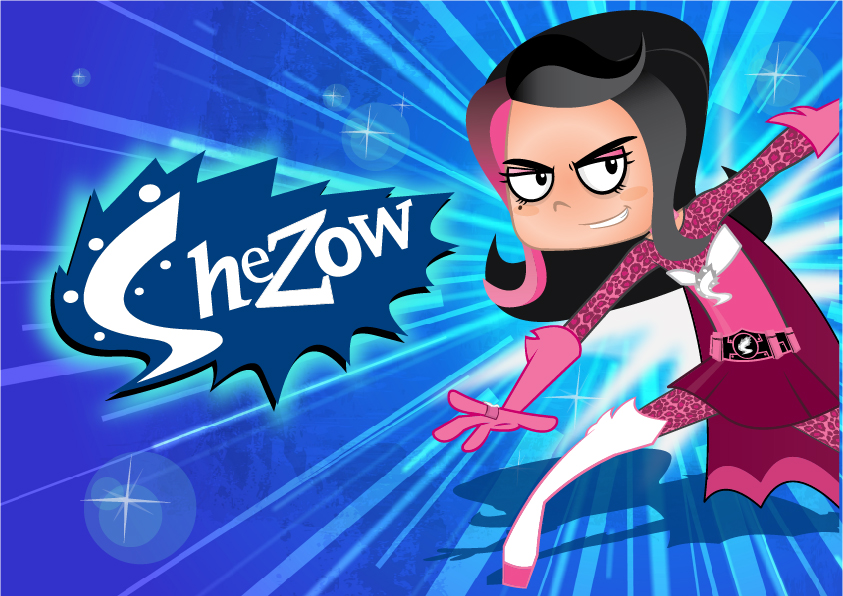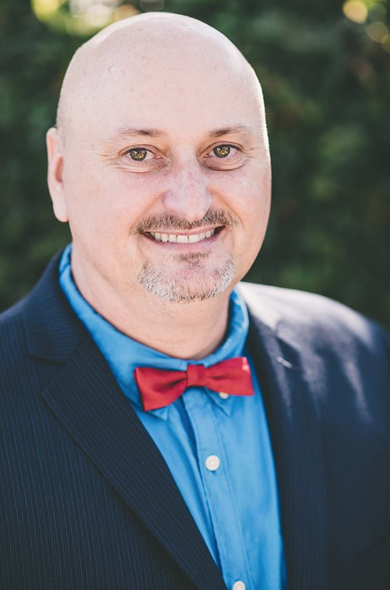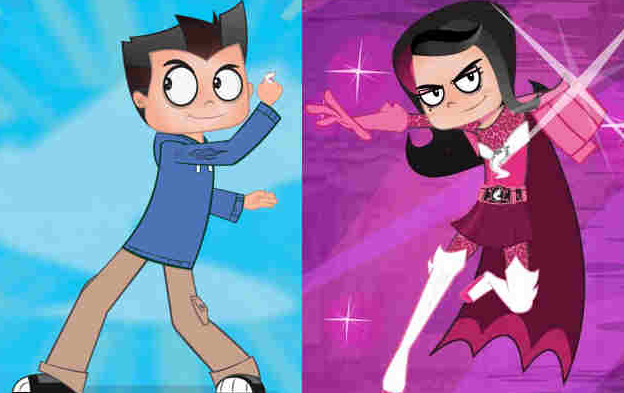
Long Beach resident and writer Obie Scott Wade was glued to the television screen at 9 years old watching Isis, a short-lived live-action TV show that ran in the middle of CBS’s Saturday morning cartoon lineup.
The 70s tale of a high school science teacher who found a powerful amulet that would turn her into the goddess Isis, leading her to engage in superhero-like feats to make society better, became the basis for Wade’s obsession with superheroes and the creation of SheZow, his cult-favorite, gender-bending cartoon show on the children-focused Hub Network.
“I wondered if I had worn the amulet, would I turn into Isis?” Wade said. “What would I be wearing? How would I look? And how cool would it be to have those powers?”
It was then that SheZow was officially born, the tale of a 12-year-old boy (literally) named Guy and, when putting on a ring given to him by his deceased Aunt Agnes and chanting, “You go, girl!” turns into a crime-fighting, “beautility”-belt sportin’ superhero. That is, a self-described “extreme dude” superhero stuck with girl power contraptions and in bedazzled costuming.
 SheZow—think Shazam! with a costume malfunction—initially started as a film idea within Wade’s imagination, his first script sent to the Library of Congress in 1993. As the script sat in amongst the endless tombs of texts, Wade worked diligently on refining and developing the story of Guy Hamdon through dozens of iterations and versions.
SheZow—think Shazam! with a costume malfunction—initially started as a film idea within Wade’s imagination, his first script sent to the Library of Congress in 1993. As the script sat in amongst the endless tombs of texts, Wade worked diligently on refining and developing the story of Guy Hamdon through dozens of iterations and versions.
Come 2012, the Hub Network premiered the first episode of SheZow entitled “SheZow Happens & Cold Finger.” And while Wade was no stranger to television—he has worked on legendary shows ranging from Mr. Rogers to Where in the World Is Carmen Sandiego?—he was, until SheZow, a stranger to controversy.
That controversy came in many forms: online posts threatening to burn Wade, accusations that he was part of the Illuminati, as well as criticism from infuriated parents, the American Family Association, the Catholic League, and the so-called One Million Moms (whose Facebook following has 66K followers—a bit to go there, Moms), who proclaimed that SheZow is “another attempt by the gay, lesbian and transgender community to indoctrinate our children into accepting their lifestyles.”
“I never thought of SheZow as some type of social statement—and when the controversy happened, I was really shocked,” Wade said. “I just fell in love with the character and was enveloped in the comedy of the show. This was a new type of superhero as far as I was concerned… I was doing it because I thought it was a great legend.”
 Most amusing from the right-wing critics was their misalignment of the show’s trans-friendly message. Guy is a guy, a young dude who loves being a dude and doesn’t become a female or identify as a female, even while fighting crime as SheZow. More crucially, he doesn’t want to be a female; he is just given powers and clothes that were supposed to be inherited and worn by a stereotypical young girl. Despite this fact, groups continue to express their distaste for the show as there are talks for a second season, a musical version, and merchandising.
Most amusing from the right-wing critics was their misalignment of the show’s trans-friendly message. Guy is a guy, a young dude who loves being a dude and doesn’t become a female or identify as a female, even while fighting crime as SheZow. More crucially, he doesn’t want to be a female; he is just given powers and clothes that were supposed to be inherited and worn by a stereotypical young girl. Despite this fact, groups continue to express their distaste for the show as there are talks for a second season, a musical version, and merchandising.
Ultimately, the growing fan base is what lies dear to Wade’s heart.
“As a gay man in his late 40s,” Wade said, “I grew up in a time where there were zero representations of gay people or people who were different in anyway whatsoever. I am happy that SheZow has found a wide range of viewers and appeals to kids who don’t fit the mold of what is mainstream.”

